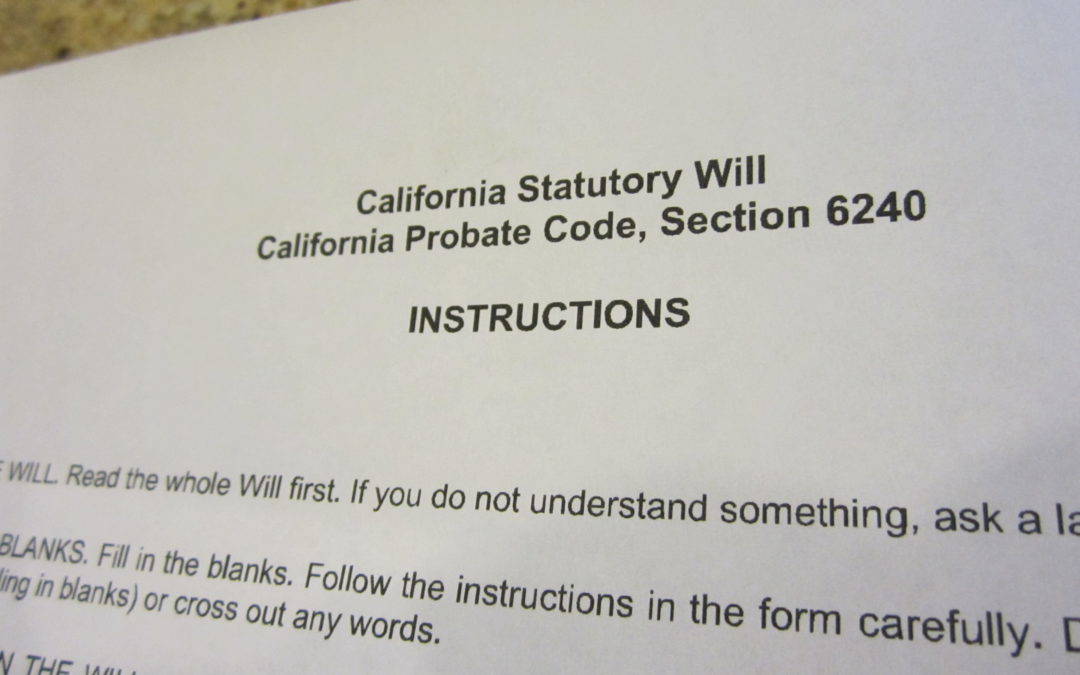After you get divorced, a lot of things happen automatically under California law. Many of these things have to do with estate planning. In this post, I’m going to go over how a divorce affects how California treats wills that either spouse has made.
In previous posts, I’ve gone over how to make a will in California, how to disinherit your children in your California will, and how to omit your spouse in your California will. If you haven’t seen those posts, I encourage you to go take a look.
The relevant law here for how a divorce affects a will is going to be in section 6122 of the California Probate Code. A very similar statute (Section 6122.1 of the California Probate Code) applies to domestic partnerships also.
Under section 6122(a), the following happens automatically upon a divorce unless a will executed after the divorce provides otherwise:
- Disposition of property to the former spouse is revoked;
- Special and general powers of appointment conferred upon the former spouse are also revoked;
- Provisions specifying the former spouse as conservator, guardian, trustee, or executor are also revoked.
In the event of a divorce, section 6122 treats the former spouse as if they had already died. In the event these spouses get remarried, however, section 6122(b) automatically reinstates/revives these same provisions of the deceased spouse’s will.
As always, this post is not meant to be a comprehensive explanation of how a divorce might affect your will or the will in the particular situation you are dealing with. If you are outside of California or your situation doesn’t involve California at all, likely none of the above will apply to you. What does apply, of course, is my usual advice: in general, the best course of action is to find a lawyer in your are to discuss your case with in order to determine what the best course is going forward.
Andy Chen
Latest posts by Andy Chen (see all)
- Management of a California Limited Liability Company (LLC) - July 8, 2025
- Record-keeping for a California Limited Liability Company (LLC) - July 7, 2025
- Member Classes in a California Limited Liability Company (LLC) - July 6, 2025


